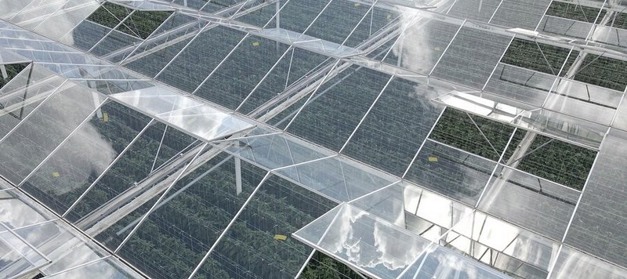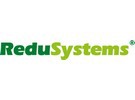AGCulture Glass from Belgium has examined the compatibility between its glass type Fountain AR (anti-reflection) and various ReduSystems coatings from Lumiforte. The cleaning agent ReduClean was tested on the well-known low-iron greenhouse glass. "We now know for sure that our Fountain glass is not adversely affected by Lumiforte's products," says director Mohammad Shayesteh on behalf of AGCulture. "In follow-up tests, we will also test them on our other glass types."
Light is a crucial year-round growth factor for growers. There is a growing demand for AR (anti-reflective) glass because it reflects less natural light and allows more PAR light to reach the crop in the greenhouse. PAR light is crucial for plant growth and development. With that said, excessive sun during sunny periods can sometimes do more harm than good to plants. This is when temporary coatings from ReduSystems can offer a solution. When the sun loses strength, the temporary coating is removed again with ReduClean.
"The compatibility of regular greenhouse glass, temporary coatings, and the corresponding cleaning agents has long been established," says managing director Mohammad Shayesteh of glass manufacturer AGCulture. "However, the compatibility of AR glass, coatings, and cleaning agents has been hardly researched. Nevertheless, we were keen to clarify this to our customers.

WUR research
Wageningen University & Research conducted research in 2022 on cleaning various types of AR (anti-reflective) glass in collaboration with glass manufacturer AGCulture. Shayesteh was pleased with the results, which show that with the proper cleaning methods and agents, there is little or no deterioration in quality.
However, he noted, "Not all of our questions had been answered. Specific attention had not been given to the potential impact of temporary coatings that are often applied to the greenhouse roof during warm, light-rich periods. We have now conducted our own research on this matter with the assistance of Lumiforte."
Additional research
"We were as curious about the results as Mr. Shayesteh and his team," adds Global R&D manager Mathieu Fiore of Lumiforte. "After all, good compatibility is essential for the life and performance of AR glass, which is a lot more expensive when purchased than ordinary, uncoated glass. Of course, our ReduSystems products, both temporary coatings and cleaning products, must not compromise that performance."
It goes without saying that the safety of ReduSystems products for users and materials has already been extensively tested by the manufacturer. "However, the variety of glass types and AR treatments is so extensive that we cannot cover them all." Fiore continues. "We also understand that glass manufacturers want to investigate the compatibility of our products themselves. We have therefore been happy to make these results available."
Coatings and cleaner
AGCulture has tested almost the entire range of ReduSystems products: ReduSol, ReduHeat, ReduFuse, and ReduFuse IR. ReduClean was used as a cleaner. "Our researchers applied the agents in accordance with the usage recommendations, allowed them to dry thoroughly, and removed them after a week using ReduClean. Before and after treatment, hemispheric light transmission was measured to determine if the AR glass deteriorated in quality." This exercise was repeated as many as 10 times for each type of coating. "In doing so, we simulated any effects over a ten-year period," explains the glass manufacturer. "After all, we believe that our glass should perform optimally for at least ten years."
Ten iterations
What were the results of this extensive field study? "Those were good across the board, both for ourselves and for Lumiforte," Shayesteh observes. "After ten treatments involving the application and removal of temporary coatings, the hemispheric light transmission of our Fountain AR glass had decreased by less than 1%. Neither the temporary coatings nor ReduClean had a noticeable adverse effect on the anti-reflection properties. Did we expect that? Actually, yes, but it's good that our suspicion has now been confirmed by research."
Other glass types
The director notes that the same protocol is now being applied to the company's other types of greenhouse glass, such as the diffuse glass Briljant and the low-emission glass Geysir. "So far, we have not encountered any surprises, but the trials are not yet complete," he notes. "In the fall, they will be, and we hope to be able to share positive results once again."
For more information: ReduSystems
ReduSystems
Tel.: +31(0)13 507 53 99
sales@redusystems.com
www.redusystems.com
